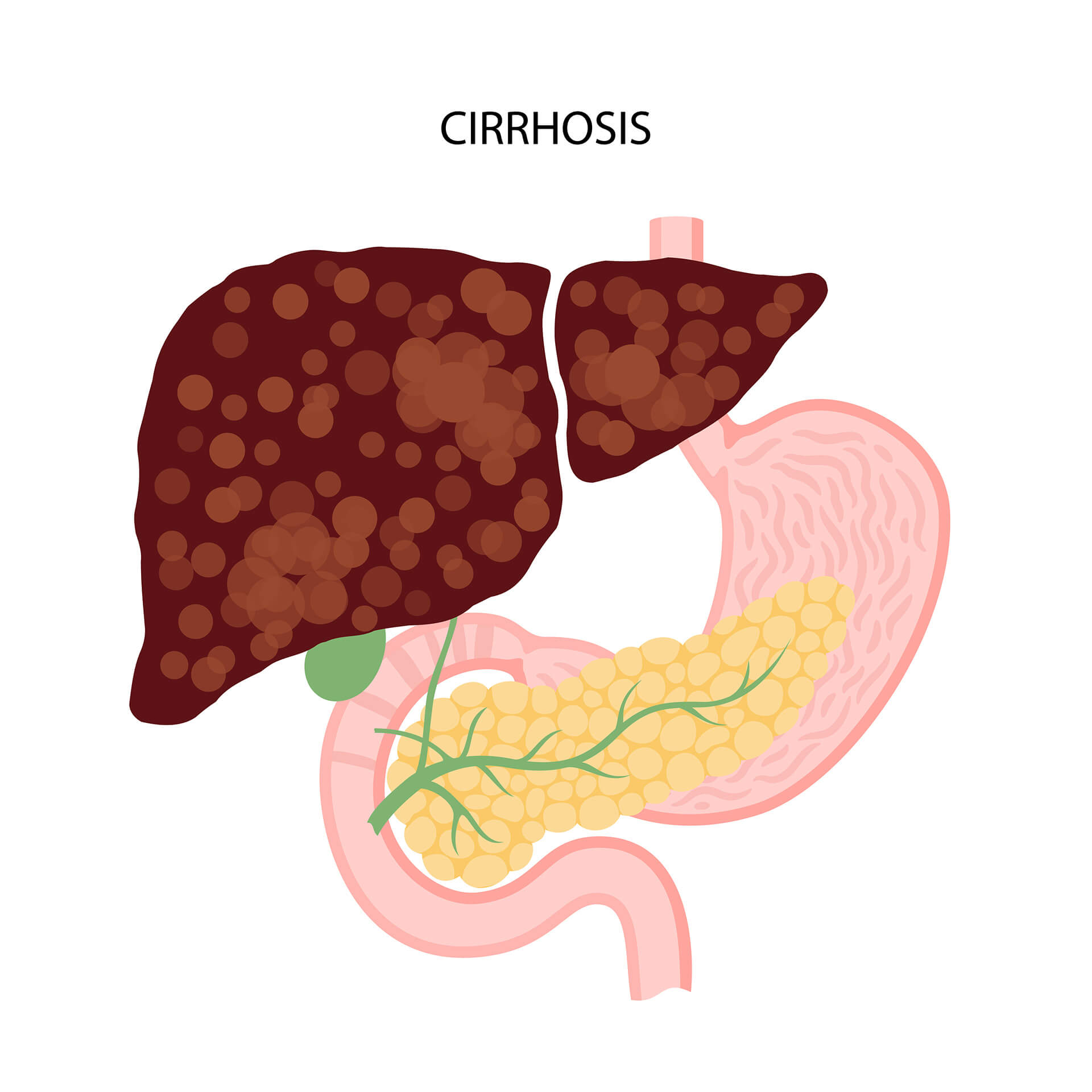The liver is one of the most essential organs of your body, playing a vital role in metabolism and the removal of toxins. Cirrhosis is a hardening and scarring of the liver that occurs as a result of disease and harm to the organ, such as hepatitis infection or alcoholism. Left untreated, cirrhosis will cause the liver to fail, so that it can no longer perform its important functions as it should. Below, we will take a look at some basics about cirrhosis of the liver, including its causes, the symptoms, the stages, and available treatments.
Causes
The causes of cirrhosis include:
- Chronic alcoholism – The number one cause of cirrhosis in the United States. Excessive alcohol intake causes the liver to swell, which can lead to cirrhosis over years of alcohol abuse. Please discuss alcohol intake with your doctor, especially if you have elevated liver enzymes or fatty liver. Seemingly unrelated or inconsequential factors may surprisingly be enough to cause liver damage.
- Hepatitis – Chronic viral hepatitis is the second leading cause of cirrhosis in the U.S. Hepatitis C is the most common culprit, but chronic hepatitis B and hepatitis D can also cause the disorder.
- Steatohepatitis – Steatohepatitis, also known as “fatty liver,” is a condition in which fat builds up in the liver, leading to swelling and cirrhosis. Steatohepatitis is usually associated with additional health issues such as obesity, high cholesterol, and diabetes.
- Bile duct disease – When the bile duct is blocked, bile builds up in the liver, which can lead to cirrhosis.
- Genetic disease – A number of genetic diseases can cause cirrhosis. If a family member has liver disease, especially cases of iron overload, you may need to be screened for it. Alcoholic liver disease is not hereditary.
Signs
The symptoms of cirrhosis can vary depending on the case and on how far the disease has progressed. In the early stages, cirrhosis typically causes no noticeable symptoms. Later on, it may cause symptoms such as:
- Weight loss
- Fatigue
- Itching
- Nausea
- Poor appetite
- Abdominal pain
- Jaundice
- Gallstones
- Easy bruising
- Edema/ swelling of the legs
- Edema/ swelling of the abdomen (ascites), which can cause severe fluid imbalance in the body
- Esophageal varices, enlarged blood vessels in the esophagus which have the potential to hemorrhage and result in vomiting of blood, which may be fatal
- Hepatic encephalopathy, in which toxins build up in the brain, resulting in confusion, forgetfulness or excessive sleepiness
The doctor will diagnose cirrhosis using information such as symptoms, blood tests, and physical examination. Liver biopsy may also be used to diagnose the extent of the disease.
Stages
When cirrhosis is in the early stages, some of the liver cells still function normally, and the patient may have no clear symptoms of the disease. As the amount of scarring and tissue hardening increases, symptoms begin to appear, and the liver’s functioning significantly declines. In the later stages of cirrhosis, the liver becomes completely unable to function normally, and severe symptoms such as ascites, esophageal varices, and hepatic encephalopathy. Late cirrhosis can be deadly, especially if not treated.
Treatments
The goal of treatment for cirrhosis is to prevent the liver from being damaged any further and to reduce the risk of complications. Treatment options depend on the cause of the condition and how damaged the liver is. Medication and lifestyle changes are the most common treatments. In cases of end-stage cirrhosis, the liver can no longer work at all, and the doctor may recommend a transplant. Treatments for cirrhosis include:
- Healthy diet and exercise, with minimal salt intake
- Abstinence from alcohol
- Drugs to treat hepatitis C
- Drugs to address the buildup of toxins in the body
- Screening for complications such as cancer or bleeding veins (varices)
- Liver transplant
If you or a loved one has symptoms or lifestyle factors that indicate possible cirrhosis, scheduling an appointment with the expert physicians at Gastroenterology Associates can start a course of action that treats some of the problems associated with cirrhosis. Contact our office today at 225.927.1190 or click through the online appointment button below.


